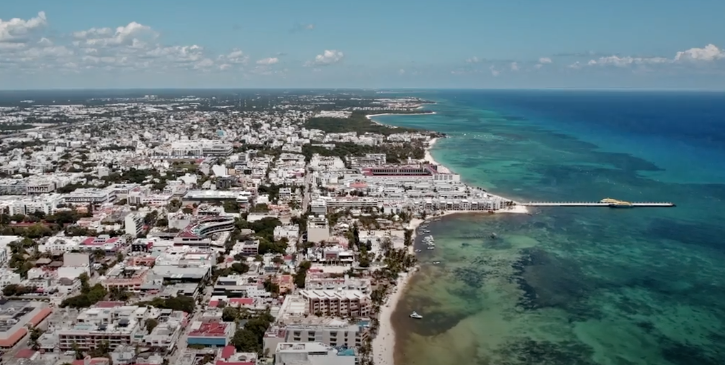2024 Relocation Guide (part 4): Understanding Taxes

Updated 9/20/24
Key Insights into Taxes and Fiscal Duties for Expats and Investors
Exploring taxes in Mexico? Our guide offers a concise overview for expats and investors, detailing tax residency and obligations on property, income, and capital gains, to ensure you navigate the fiscal landscape with ease.
If you have specific questions about relocating and all related topics, reach out to the licensed buyer's reps at Mycasa Real Estate and get answers immediately. They are standing by to help you.
Key Takeaways
- Navigating the tax system in Mexico can seem daunting for expats and investors. In this guide, we break down the essential fiscal duties, including property taxes, income tax, and capital gains tax, with a focus on simplifying the process. Whether you're buying property, renting it out, or selling, this guide will help you stay informed and compliant with Mexican tax laws.
Table of Contents
- Tax Residency in Mexico
- Property Taxes and Acquisition Tax
- Income Tax on Rental Properties
- Capital Gains Tax in Mexico
- Legal Requirements for Renting Out Your Property
- Closing Costs and Fees in Real Estate Transactions
- Double Taxation Issues for Foreign Property Owners
- Navigating the Mexican Real Estate Market
A Quick Overview of Tax Obligations in Mexico
Expats and investors are subject to specific taxes when owning or selling property in Mexico. Here's a concise breakdown:
- Tax Residency: Spending more than 183 days in Mexico in a year makes you a tax resident, subject to global income taxation. Non-residents only pay taxes on Mexican-sourced income.
- Property Taxes: Owners must pay Predial, an annual tax, and ISAI, a one-time acquisition tax. Rates vary based on the property's assessed value and location.
- Rental Income: Mexican tax residents pay progressive rates (up to 35%), while non-residents pay a flat 25%.
- Capital Gains: Residents face a progressive tax on profits from property sales, while non-residents are taxed at 25% on gains.
For more details, continue reading the sections below.
Tax Residency in Mexico
Unraveling the intricacies of tax obligations in Mexico begins with comprehending your tax residency status. Individuals spending over 183 days within a calendar year in this vibrant country are considered tax residents. This status significantly influences your tax obligations as Mexican tax residents are subject to taxation on their worldwide income. This includes income from both domestic and international sources.
However, if you are a non-resident, your tax obligations are limited to Mexican-sourced income. This encompasses rent from properties or capital gains from the sale of real estate in the country. Hence, understanding your tax residency is vital when investing in Mexican real estate, as this status deeply impacts your tax obligations and potential expenses.
Property Taxes and Acquisition Tax
 Now that you’re familiar with the influence of tax residency on your fiscal duties, let’s explore the realm of property taxes and acquisition tax in Mexico. We’ll look into these two key taxes: the annual property tax, known as Predial, and a one-time Property Acquisition Tax, also referred to as ISAI.
Now that you’re familiar with the influence of tax residency on your fiscal duties, let’s explore the realm of property taxes and acquisition tax in Mexico. We’ll look into these two key taxes: the annual property tax, known as Predial, and a one-time Property Acquisition Tax, also referred to as ISAI.
Annual Property Taxes
The annual property tax, or Predial, is a mandatory fiscal duty for every property owner in Mexico. The amount of Predial is calculated based on the assessed value of the property, taking into account factors such as property size and location. The tax rate for Predial typically ranges from 0.05% to 1.2%, varying significantly based on the property’s characteristics.
Sound financial due diligence for property owners includes ensuring that the annual property taxes are paid and up-to-date, as well as obtaining title insurance from a reputable title insurance company. Don’t forget, timely payments made between January and February can lead to handsome discounts on your annual property tax, with discounts ranging between 6% and 10%.
Property Acquisition Tax
 The Property Acquisition Tax, or ISAI, is another key tax levied on property purchases in Mexico. ISAI rates vary depending on the property’s assessed value, which tends to be lower than the market listing price. This rate typically ranges from 2% to 5%, and the buyer is responsible for paying it at the time of signing the purchase agreement.
The Property Acquisition Tax, or ISAI, is another key tax levied on property purchases in Mexico. ISAI rates vary depending on the property’s assessed value, which tends to be lower than the market listing price. This rate typically ranges from 2% to 5%, and the buyer is responsible for paying it at the time of signing the purchase agreement.
However, it’s important to remember that ISAI rates vary by state. For example, you might find yourself paying as low as 0.02% in Yucatan or progressing between 3.1% to 4.5% in Mexico City. Careful calculation and understanding of the ISAI can result in significant savings during your property acquisition journey.
Income Tax on Rental Properties
 If you’re planning to earn rental income from your Mexican property, be prepared to pay income tax. The progressive income tax rate for rental income in Mexico ranges from 0% to 35%, depending on your income level. For tax residents, the rates start at 1.92% and can escalate up to 35%. However, non-residents face a higher tax rate on rental income. A 25% income tax is levied on the gross rents received, which can significantly impact your profit margin.
If you’re planning to earn rental income from your Mexican property, be prepared to pay income tax. The progressive income tax rate for rental income in Mexico ranges from 0% to 35%, depending on your income level. For tax residents, the rates start at 1.92% and can escalate up to 35%. However, non-residents face a higher tax rate on rental income. A 25% income tax is levied on the gross rents received, which can significantly impact your profit margin.
Nevertheless, there are ways to optimize your income taxes. To calculate your taxable income, you can deduct various expenses such as:
- taxes
- cleaning fees
- upkeep
- insurance
- mortgage interest
- an annual depreciation of 5% of the property value adjusted for inflation
Alternatively, you can utilize a method that allows a 35% reduction of the gross rental income to be used as the taxable amount. Therefore, with careful planning and effective cost management, some property owners might not owe any income tax on rental income.
Capital Gains Tax in Mexico
 Selling your Mexican property? Brace yourself to pay capital gains tax. Tax residents of Mexico are subject to a capital gains tax that ranges from 1.92% to 35%. However, if you are a non-resident, you will be levied a flat rate of 25% on your capital gains.
Selling your Mexican property? Brace yourself to pay capital gains tax. Tax residents of Mexico are subject to a capital gains tax that ranges from 1.92% to 35%. However, if you are a non-resident, you will be levied a flat rate of 25% on your capital gains.
But there’s a silver lining! Non-residents can reduce their capital gains tax liability by owning the property for more than five years or reinvesting in another Mexican property within 180 days of the sale. Additionally, tax residents may qualify for a one-time tax allowance exemption under certain conditions, reducing tax liability on the sale of a family home.
Remember, capital improvements on the property are deductible from the gain for capital gains tax calculations, provided that official receipts are available.
Legal Requirements for Renting Out Your Property
Renting out your Mexican property requires understanding and adhering to certain legal requirements. Foreigners must obtain a Temporary Residency Visa, which requires buying property valued at over $174,000 USD. The process involves an interview at a Mexican consulate and interactions with the Instituto Nacional de Migración, typically taking about three months.
Non-resident property owners must:
- Appoint a Mexican individual or company to manage their tax affairs, which includes retaining and filing taxes from rental income.
- Register as a taxpayer for rental income to avoid penalties.
- Meet all legal requirements to ensure a smooth rental process and avoid penalties that can add up to significant amounts over time.
Closing Costs and Fees in Mexican Real Estate Transactions
In Mexico, the buyer is generally responsible for 100% of the closing costs, which are estimated to range between 4% to 6% of the actual purchase price, including the down payment. These costs consist of notary fees, which are a mandatory part of the property transaction in Mexico, amounting to around 0.5% to 1% of the property’s value. In addition, registration fees in the Land Registry Office range from 0.5% to 1.0% of the transaction value, varying by state.
Foreign buyers have to account for trust-related costs as well, including a trust permit fee, a Foreign Investment Registry fee, trustee bank acceptance fees, and the first year’s trust fee. Miscellaneous fees and expenses include the cost of an appraisal, an appraisal for future tax assessment, a Non-Encumbrance Certificate fee, and Preventative Notice Advice fees. Hence, understanding and budgeting for these costs is crucial to avoid unexpected expenses during the property transaction process.
For a more in-depth look at closing costs, check out the Closing Costs section on our Guide to Buying Land in 2024.
Property Management Considerations
Maintaining your property in Mexico and ensuring a positive guest experience can be a challenging task, especially if you’re based overseas. Hiring a property manager is highly recommended for these purposes. While selecting a suitable property management company, focus on local expertise, secure written agreements, and validate their quality via recommendations and testimonials.
Your property management strategy should involve a collaborative partnership with a property manager or dedicated co-host, particularly for short-term rentals and absentee hosting. Property management fees vary depending on the type of rental. Vacation homes are often charged at 30-40% and full-time rentals between 8% to 12% of monthly income, plus potential additional costs for extra services. Hence, understanding these costs and making an informed choice can be instrumental in ensuring the success of your rental property.
Double Taxation Issues for Foreign Property Owners
 Avoiding the pitfall of double taxation is crucial for foreign property owners. Mexico has double-taxation agreements (DTAs) with various countries, which help foreign property owners reduce or eliminate tax withholdings from non-resident income. Under these DTAs, residents of countries with agreements can credit foreign income tax paid against their Mexican tax liability, subject to certain limitations.
Avoiding the pitfall of double taxation is crucial for foreign property owners. Mexico has double-taxation agreements (DTAs) with various countries, which help foreign property owners reduce or eliminate tax withholdings from non-resident income. Under these DTAs, residents of countries with agreements can credit foreign income tax paid against their Mexican tax liability, subject to certain limitations.
These DTAs are designed to encourage international investment by preventing double taxation of the same income in Mexico and the taxpayer’s country of residence. For instance, the ISR tax paid in Mexico can be claimed as a tax credit in the United States, providing relief from double taxation for U.S. property owners in Mexico. However, no credit is allowed for foreign taxes on income that is exempt from Mexican tax, ensuring tax credits are only applied to income that is actually subject to double taxation. The tax administration service plays a crucial role in implementing these DTAs and ensuring compliance.
Navigating the Mexican Real Estate Market
Navigating the Mexican real estate market requires more than just financial investment. It demands due diligence, understanding local laws and regulations, and working with experienced professionals, such as a real estate agent. This diligence involves an extensive investigation to identify legal, financial, or physical issues. This may require experts such as:
- real estate lawyers
- notary publics
- surveyors
- architects
while also contending with language barriers.
Investigations must verify the property’s escritura (deed) for any liens or encumbrances and ensure its proper registration. In addition, the fideicomiso system presents unique risks for foreigners purchasing property within the restricted zone, necessitating bank trusts that can complicate property rights. A promissory agreement may be used in some cases to outline the terms of the transaction. Buyers must also be cautious about Ejido land, which is often not purchasable by foreigners, and ensure proper review of easements that may affect property use and value.
Equipped with knowledge and caution, navigating the Mexican real estate market can be a rewarding experience. Developing personal relationships and networking with local authorities, community members, and the Mexican government can provide valuable insights. Working with real estate professionals and lawyers experienced with foreign investors can smooth the process and ensure a successful investment.
Its important to enlist the help of licensed and trained real estate agents from the very beginning. Learn to recognize the warning signals when you're dealing with bad real estate agents and reach out to Mycasa Real Estate for a smooth and professional experience.
Summary
Investing in the Mexican real estate market is more than just purchasing property. It involves understanding your tax residency, paying property taxes, calculating income tax on rental properties, and navigating the capital gains tax. It also requires complying with legal requirements, handling closing costs, and considering property management options. Dealing with potential double taxation issues and understanding the local real estate market is also crucial. With knowledge, due diligence, and the right professionals by your side, your dream of owning a picturesque villa beside the turquoise beaches of Mexico can indeed become a successful and profitable venture.
Frequently Asked Questions
What tax do you pay in Mexico?
You pay income tax in Mexico, which is calculated based on a progressive tax rate system. The tax rates in Mexico are generally lower than those in the US.
Is Mexico a high tax country?
No, Mexico is not a high tax country, as it had the 35th lowest tax wedge among OECD member countries in 2022.
Do Mexican expats pay taxes?
Yes, Mexican expats are subject to Mexican income tax on their worldwide income if they are residents, but if they are non-residents they are taxed only on their Mexican-source income.
What is the main factor that determines tax residency in Mexico?
The main factor that determines tax residency in Mexico is spending over 183 days within a calendar year in the country. This is the crucial threshold for tax residency.
What are the main types of taxes that property owners in Mexico have to pay?
The main types of taxes that property owners in Mexico have to pay include annual property taxes (Predial), Property Acquisition Tax (ISAI), income tax on rental income, and capital gains tax when selling the property. Keep in mind that these taxes are subject to change, so it's important to stay informed.
Updated 1/16/25











Comments (0)